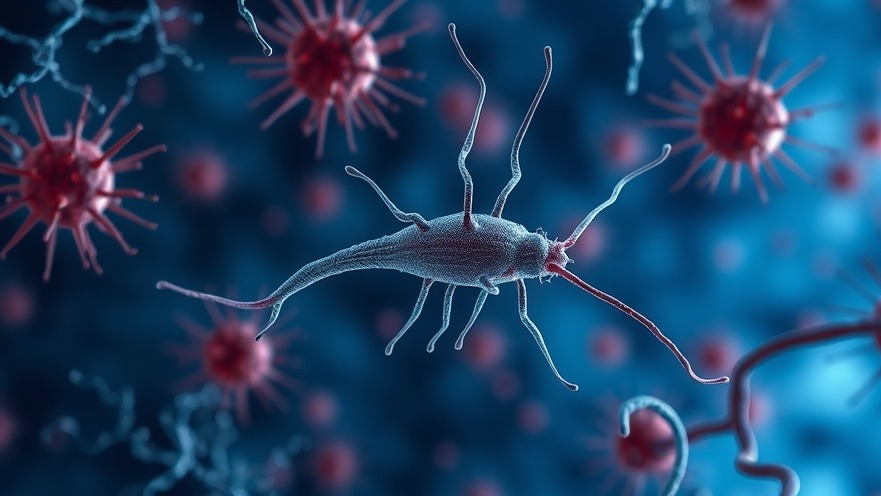
Understanding the Rise of Ultra-Processed Food Addiction
The alarming trend of ultra-processed food addiction among middle-aged Americans, particularly women, highlights a critical shift in dietary habits and health implications. Recent research reveals that 21% of women in Generation X exhibit addictive behaviors towards these convenient yet harmful food choices. This is a significant rise compared to just 12% among older adults aged 65 to 80. But why is this becoming more common, and what does it mean for both individual health and societal wellness?
The Historical Context: When Ultra-Processed Foods Became Mainstream
To understand the current addiction rates, we must consider the historic context of food marketing. Generation X women grew up during the 1980s, a decade renowned for aggressive marketing of low-fat and convenience foods. Products like low-fat cookies and microwave meals were promoted aggressively, enticing consumers with promises of a healthier lifestyle while simultaneously embedding deeply addictive ingredients into these foods. This marketing strategy catered to a demographic that was increasingly seeking quick and supposedly healthier meal options, setting the stage for the current challenges they face.
The Impact of Early Exposure on Eating Habits
Research indicates that early exposure to ultra-processed foods may have adverse long-term effects on eating habits. As children and young adults, these individuals created neural pathways linked to the convenience and comfort these foods provided. The rich flavors enhanced with sugars, salts, and fats made them irresistible, leading to habitual consumption that could override natural hunger cues. This habitual indulgence often spirals into cravings and ultimately addiction, exemplified by the struggles today's older women face in managing their diets.
Understanding Gender Disparities in Food Addiction
Interestingly, the study reveals a significant gender disparity in food addiction rates. Unlike traditional substance use disorders, which tend to afflict men more heavily, ultra-processed food addiction shows a trend of higher prevalence among older women. This phenomenon may largely be driven by targeted marketing strategies that focused on women, promising weight control through the consumption of ultra-processed, low-fat products. The implications here are profound, raising questions about fairness and the role of marketing in perpetuating health issues among specific demographics.
Health Consequences of Ultra-Processed Food Addiction
As this addiction becomes more prevalent, the associated health risks cannot be overlooked. Ultra-processed foods are often linked to chronic conditions such as obesity, diabetes, and heart disease. This is troubling not just for those currently addicted but also for future generations who may face similar or heightened risks. With lifestyle diseases on the rise, proactive measures must be taken to educate and empower individuals in making healthier food choices.
Future Implications: A Call for Change in Consumption Patterns
If current trends continue, we could witness a future where younger generations, already exposed to ultra-processed foods, exhibit even higher addiction rates. There's an urgent need for educational campaigns aimed at improving food literacy among all age groups. Such initiatives could focus on the benefits of whole foods, balanced diets, and mindful eating practices—crucial strategies in overcoming the persistent lure of fast, ultra-processed options.
Healthy Alternatives and Solutions
As we move forward, incorporating healthier alternatives into daily diets becomes paramount. Focusing on clean eating, incorporating whole foods, and utilizing natural supplements can help counteract the grip of these addictive products. For example, nutrient-dense foods, like fruits, vegetables, and whole grains, not only satisfy hunger but also promote overall wellness. Simple shifts such as meal planning and preparing home-cooked meals can dramatically enhance your quality of life while empowering you to take control of your eating habits.
Conclusion: Taking Action for a Healthier Future
Understanding the complexities behind ultra-processed food addiction allows for a more informed approach to dietary choices. If you or someone you know is struggling with unhealthy eating habits, it’s never too late to make a change. Remember that taking proactive steps towards healthier living not only benefits you but can also set a positive example for younger generations. Let's work together to foster a culture of wellness and support.
 Add Element
Add Element  Add Row
Add Row 



Write A Comment